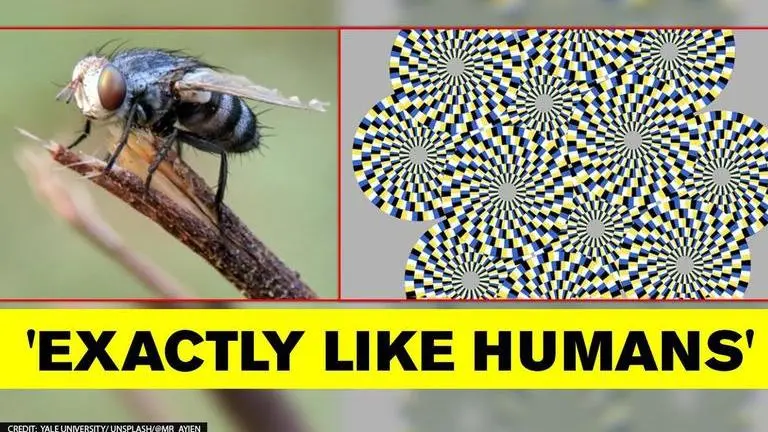Updated 26 August 2020 at 17:48 IST
Scientists find similar visionary perception in flies and humans with optical illusion
The research was focused around theories that people perceived motion in some static images and neuroscientists explained in through fly's eye-view.
- Science News
- 2 min read

Scientists have found that the flies get deceived with optical illusion as easily as humans. The research was published on August 24, in Proceedings of the National Academy of Sciences journal by the team of researchers at Yale University. The research was focused around theories that people perceived motion in some static images and neuroscientists attempted to explain the phenomenon from a flies’ eye view. Scientists found that flies ‘visioned’ the illusions exactly like humans.
"It was exciting to find that flies perceive motion in static images the same way we do," said Damon Clark, associate professor of molecular, cellular and developmental biology and of physics and of neuroscience at Yale.
The visual system in the flies’ eyes tricked it as researchers observed the activity of neurons. Clark lab member, Margarida Agrochao and Ryosuke Tanaka documented the research in a visual format as they studied the flies behaviour and motion when presented with the optical illusions. “Flies instinctively turn their bodies toward any perceived motion; when presented with the optical illusion, the flies turned in the same direction as the motion that humans perceive in the pattern,” the neuroscientists wrote in the research.
"The last common ancestor of flies and humans lived a half billion years ago, but the two species have evolved similar strategies for perceiving motion," Damon Clark, associate professor of molecular, cellular and developmental biology and of physics and of neuroscience at Yale release. "Understanding these shared strategies can help us more fully understand the human visual system,” he added.
Advertisement
Illusory motion altered
In the study, authors backed the neuron activity, saying, flies' perception of illusory motion altered using an on-off type of mechanism of its motion-detecting neurons. Small brains of flies made it easier to track the activity of neurons in their visual system. Scientists then documented the data in files with a detailed analysis of its perceived illusory motion. They compared the data of flies’ visual processing with humans in further experiments. Observation of as many as 11 participants suggested a similar mechanism as seen in flies, although in some the visionary perception was somewhat more complicated but similar.
Advertisement
Published By : Zaini Majeed
Published On: 26 August 2020 at 17:48 IST
